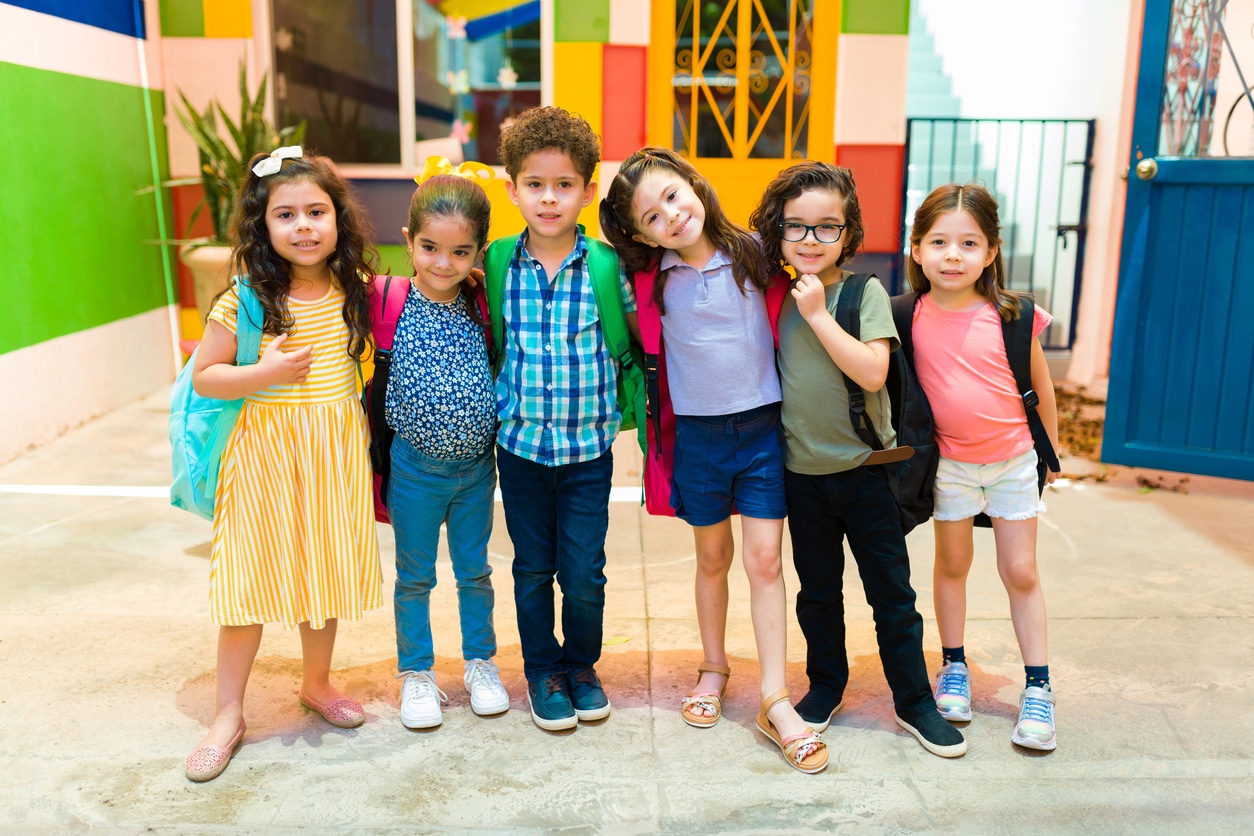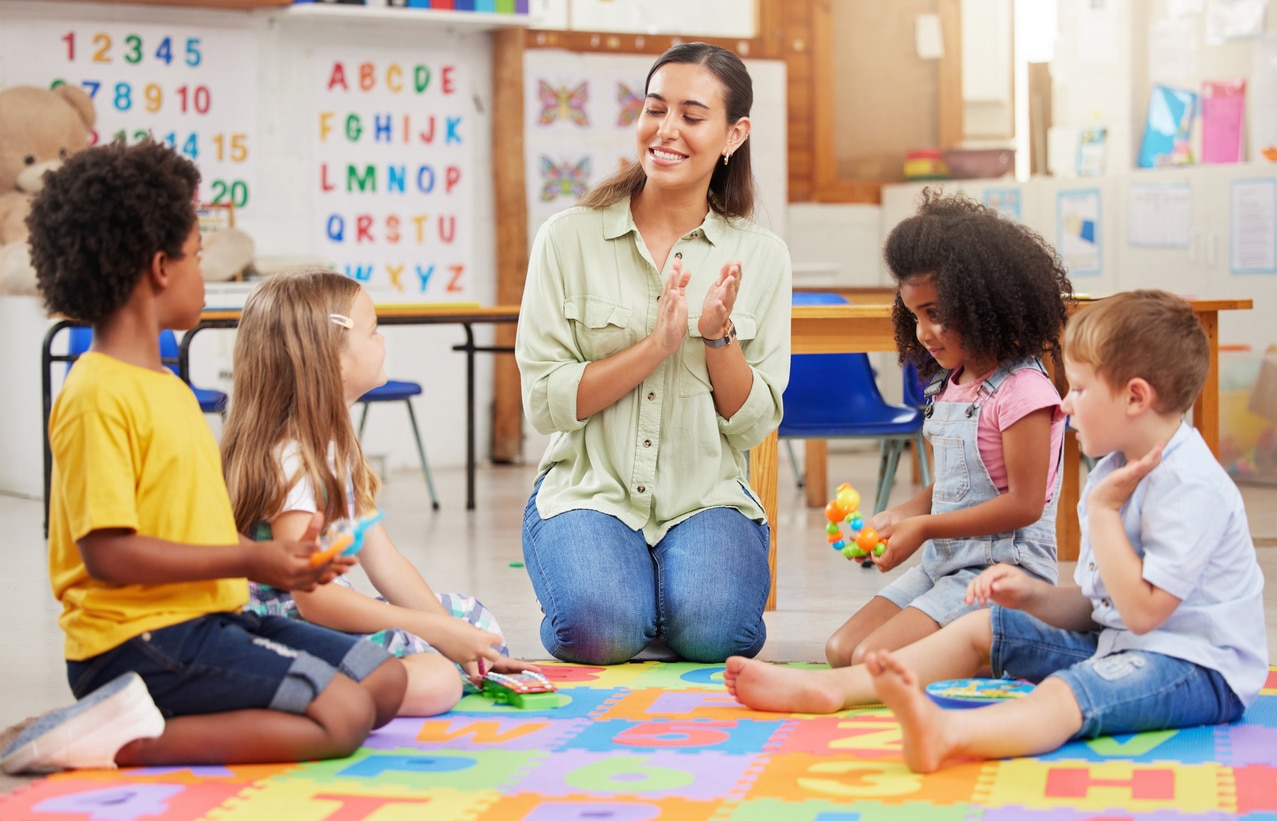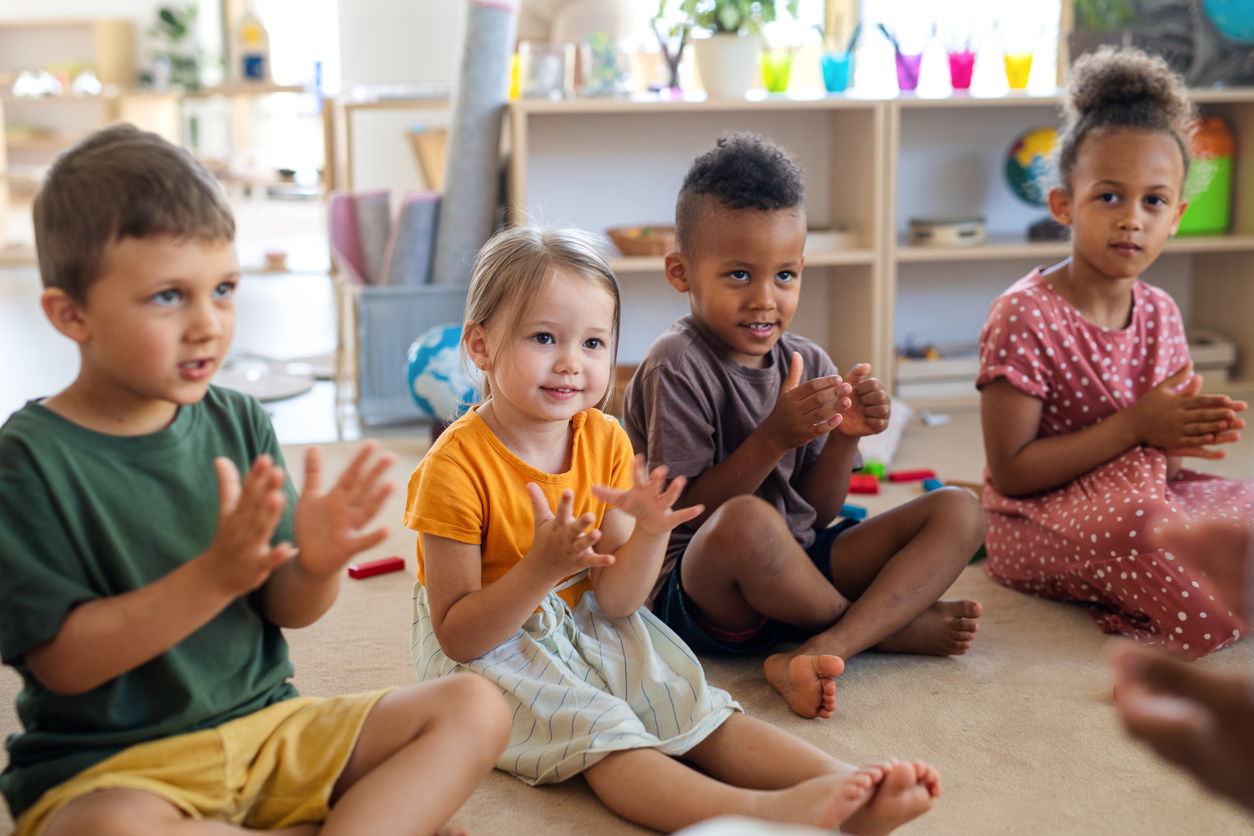Reviewing VKRP Fall 2022 Data Reports

The fall VKRP term is closed and teachers are viewing their reports. How can you make the best use of the information you’ve collected? First, remember to review the Interpreting Reports guides for Kindergarten and Pre-K – they have lots of great information to walk you through the reports generated by the VKRP system. Then, read on for tips about using key aspects of the VKRP reports:
- Kindergarten benchmarks
- Pre-k skill development bands
Kindergarten Benchmarks
Kindergarten benchmarks for the mathematics (Early Mathematics Assessment System; EMAS), self-regulation, and social skills (Child Behavior Rating Scale; CBRS) assessments were established using developmental expectations in conjunction with data collected across the Commonwealth over the 2015-2019 pilot phase. Students scoring below the benchmark on a specific assessment are most likely not demonstrating the level of skills one would expect for a kindergarten student in the fall of kindergarten, and may need extra help to demonstrate grade level skills.
Students scoring above the benchmarks still have a lot of room to grow across the year and will benefit from grade level instruction and enrichment opportunities. Research suggests that all students benefit from challenging instruction, but what students find challenging – rather than just plain frustrating – will be different depending on their current skill levels. Some examples are below.
For social skills:
- Students below the benchmark may be learning how to navigate social situations without getting frustrated. They may benefit from techniques to stay calm and use words to tell peers what they want or need. Challenge them by helping them talk through solutions with peers when they start to get upset.
- Students above the benchmark are learning how to take turns and share materials. You could challenge them by asking them to work out their own solutions to problems, like deciding how to share a coveted resource or who gets to go first to a favorite rotation.
For self-regulation:
- Students below the benchmark may be more distractible or need more reminders to complete tasks. Set them up for success by giving them a low-distraction environment to work in when they need to focus. Challenge them by giving them multi-step tasks that include visual reminders of each step so that they can work independently.
- Students above the benchmark are learning how to ignore distractions, focus on tasks, and follow complex instructions. Challenge them by giving them multi-step tasks to complete. (But give them reminders if they get stuck!)
For mathematics:
- In numeracy, students below the benchmark may be working on producing smaller sets of objects (up to 5) and learning the counting sequence from 1 to 20 without skipping ‘teen’ numbers.
- In numeracy, students above the benchmark may be working on numeracy skills like producing sets of objects up to 10 and ‘counting on’ starting from numbers between 11 and 20.

Pre-K Skill Development Bands
For three-year-olds and four-year-olds, Pre-K reports include skill development bands instead of benchmarks. We use this approach because children enter preschool with very different early life experiences in mathematics – self-regulation, and social skills. The skill development bands are meant to give teachers a sense of which children may need extra support to reach kindergarten readiness goals by the start of kindergarten, which children are on track to meet readiness goals with typical instruction, and which children would benefit from some additional challenge.
For the developmental domains of social skills, self-regulation, and mathematics, there are three skill development bands. Below are descriptions of each band, and examples of behaviors you might observe in three- and four-year-olds in each band:
- Children in the Beginning band are just beginning to demonstrate skills in the domain and may need extra support and scaffolding as they develop toward readiness for kindergarten.
- Four-year-olds:
- In social skills, children in the beginning band may need support to share with peers and begin using words to solve social problems.
- In self-regulation, children in the beginning band may need short chunks of instruction with extra support to focus tasks and ignore distractions.
- In mathematics, children in the beginning band may be just starting to learn the counting sequence to 10, identify basic shapes, and explore patterns.
- Three-year-olds:
- In social skills, children in the beginning band may be starting to share toys and materials with friends and may occasionally react to conflict by acting out physically or verbally.
- In self-regulation, children in the beginning band may have a lot of difficulty doing focused work in the presence of distractions.
- In mathematics, children in the beginning band may be learning to count one or two objects, match basic shapes, and act out patterns with their bodies by clapping or stomping.
- Four-year-olds:


- Children in the Growing band can benefit from typical, developmentally-appropriate instruction as they acquire school readiness skills.
- Four-year-olds:
- In social skills, children in the growing band are learning to cooperate with peers but may need help to resolve conflicts.
- In self-regulation, children in the growing band may be able to maintain focus for several minutes during engaging tasks, even with some distractions.
- In mathematics, children in the growing band may be learning to count backwards from 10, using shapes to make pictures, and making simple patterns out of blocks or shapes.
- Three-year-olds:
- In social skills, children in the growing band may sometimes take turns without being told but other times need help letting other children have a turn.
- In self-regulation, children in the growing band may be learning to follow classroom rules with some reminders from adults.
- In mathematics, children in the growing band may be learning the counting sequence up to three or five and recognizing shapes around the classroom.
- Four-year-olds:
- Children in the Strong band have a solid foundation of school readiness skills and may benefit from extra challenge.
- Four-year-olds:
- In social skills, children in the strong band may be using emotion words to describe how they or their friends feel.
- In self-regulation, children in the strong band may be focusing for longer periods of time on more challenging tasks, even with some distractions.
- In mathematics, children in the strong band may be learning to count higher, make more complex patterns, and recognize less common shapes around the classroom.
- Three-year-olds:
- In social skills, children in the strong band may be better able to share materials and take turns with friends, although they still need adult support at times.
- In self-regulation, children in the strong band may be able to sit for a few minutes to complete an activity they find engaging.
- In mathematics, children in the growing band may be learning to count to 10 and identify shapes by name.
- Four-year-olds:
Remember that whatever children’s skills are at the start of the school year, they benefit from strong, positive relationships with the people around them, predictable routines, and challenging, engaging instruction!
More Questions for the VKRP Team? VKRP provides support via the online chat feature when you are in the system, via email vkrp@virginia.edu, and via toll free 866-301-8278

